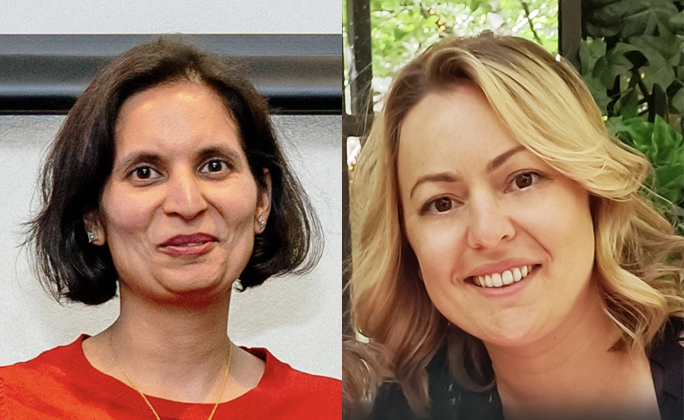Returning to education after raising her family, Holmesglen graduate Danielle (pictured right) says an allied health assistance course gave her important nutrition knowledge which she uses in both her professional and personal life.
“I gained a good knowledge of diets – what a daily diet should look like and how they prevent diseases,” she explains.
Fellow graduate Arti Sapra (left) came to Australia from India in 2019, having previously completed an MBA. She says returning to study after 14 years was rewarding.
“The course had good collaboration and the teachers inspired you with every class. It opened your confidence levels," says Arti.
“Even if for no one else, you should do this course for your own health."
The course, which is free for eligibile students, covers nutrition advice, healthy body systems, meal plans and applying medical terminology to assist clients. It is delivered with a combination of theory and practical classes, backed up by 120 hours of compulsory placement.
With only one in 13 adults eating enough fruit and vegetables, according to the ABS, the need for qualified allied health assistant professionals is becoming clearer. Seek projects these jobs to grow by 15 per cent by 2025.
“I’ve always had a natural interest in healthy food and how it can help the body. I want people to know how good healthy foods can taste, as I don’t think everyone is fully aware,” says Danielle.
The Australian Government’s Long Term National Health Plan supports this passion for living a healthier lifestyle. As part of its National Preventive Health Strategy, diet is outlined as a significant way to prevent some chronic diseases.


